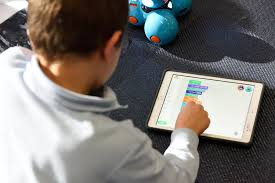What are some good memory activities?
Here are the top games you can play to improve your memory.
- Crossword puzzles. Crosswords are one of the most classic brain training games.
- Chess.
- Jigsaw puzzles.
- Rebus puzzles.
- Sudoku.
- Concentration.
- Games that require multi-tasking.
How do you play memory games for kids?
How to play this memory game with your child
- Spread the objects out on the tray and cover them with the cloth.
- Set the timer for one minute.
- When your child is ready, remove the cloth and give your child one minute to look at the tray and memorise the items.
- When the time is up, cover the items with a cloth.
How can I improve my childs memory?
Do’s
- Do employ visualisation. Tell your child to paint a picture in his or her mind about what they have just read or heard.
- Do take a multisensory approach. Try to utilise all the senses when learning something.
- Do add colour.
- Do make use of patterns.
- Do connect experiences.
What games improve working memory?
Top Brain-Training Games
- Lumosity. Free in the iOS Store and Android Play Store, Lumosity offers an ever-expanding set of cognitive and scientific games designed to improve your working memory and stimulate your brain on a daily basis.
- Dakim.
- Clevermind.
- Fit Brains Trainer.
- Brain Fitness.
- Brain Trainer.
- Brain Metrix.
- Eidetic.
What are some good memory activities? – Additional Questions
What puzzles are good for memory?
Jigsaw puzzles improve your short-term memory. Can’t remember what you had for lunch yesterday? Jigsaw puzzles can help with that. Doing a puzzle reinforces connections between brain cells, improves mental speed and is an especially effective way to improve short-term memory.
What kind of games help your brain?
Studies have shown: Games can be good for the brain. Jigsaw, crosswords, and number puzzles have been found to improve cognitive function in older adults. Meanwhile, some studies have shown that board games, chess, checkers and analog games appear to help enhance the brain’s processing speed and memory.
Can playing memory games improve memory?
The Advanced Cognitive Training for Independent and Vital Elderly (ACTIVE) study of individuals over the age of 65 found that consistently practicing word puzzles, memory games, and visual recognition tasks improved memory in test group subjects.
How can students improve working memory?
You can help your child improve working memory by building simple strategies into everyday life.
- Work on visualization skills.
- Have your child teach you.
- Try games that use visual memory.
- Play cards.
- Encourage active reading.
- Chunk information into smaller bites.
- Make it multisensory.
- Help make connections.
Do word games improve brain?
Research has shown that playing word games and solving word puzzles improve cognitive function in the brain. A study published in the International Journal of Geriatric Psychiatry found that doing such puzzles improve memory, attention, the executive function of the brain and information processing.
Does Sudoku help with memory?
Playing brain games, like Sudoku, may help stave off the memory decline that comes with age.
What games can increase IQ?
- Sudoku. grinvalds / Getty Images.
- Lumosity. Lumosity is one of the most established brain training and mental fitness programs.
- Crosswords. Crosswords are a classic brain trainer, accessing not only verbal language but memory from many dimensions of knowledge.
- Elevate.
- Peak.
- Happy Neuron.
- Braingle.
- Queendom.
Do crossword puzzles help memory?
Research shows doing crossword puzzles regularly can also improve your ability to focus attention on a desired task and improve your executive function and working memory. All of these skills improve one’s ability to successfully navigate the challenges of everyday life and remain independent for as long as possible.
Can Sudoku increase IQ?
Practising a game like sudoku or using a brain training app might make you better at it but it won’t boost your IQ or general brain power, a study claims. And instead, researchers suggest people exercise more, socialise and make sure they get enough sleep if they want their mind to be sharper.
What increases your IQ?
Training your memory, executive control, and visuospatial reasoning can help to boost your intelligence levels. The best way to train these areas of your brain is to engage in thoughtful activities and games, learn new skills, and keep your brain active.
What happens if you play Sudoku everyday?
The more you play, the better you become. If you play Sudoku daily, you will start to discover that you have almost a sort of “sense memory” for the puzzle grid – you will start to see patterns emerging and develop the ability to seize opportunities more quickly.
Is Sudoku a waste of time?
This does not mean brain games — or even less expensive mental activities like Sudoku — are a total waste of time. “We’re not saying all brain-training tools are bad,” Charness says. “If you enjoy mental puzzles, great. Go ahead and do them.
What kind of person likes Sudoku?
Solving the most high-level Sudoku players requires speed, quick decision-making, and an element of confidence and “guts.” The best Sudoku players are unflappable under pressure.
What does Sudoku do to the brain?
Due to the fact that Sudoku improves memory function, you should be able to shave a few seconds off your time each time you complete a puzzle. This can improve the speed at which you think about things in everyday life. Retaining knowledge is a very big part of learning and an even bigger part of learning quickly.
Is Sudoku better than chess?
Brain training games such as Sudoku do NOT make you smarter, find scientists who reviewed three decades of research. From doing Sudoku every morning to playing more chess to learning a musical instrument, lots of people try different ways to become smarter and improve their memory.
Is Sudoku good for ADHD?
You can try ADHD brain exercises on your own, but there isn’t much evidence that they’re effective this way. Still, it can’t hurt to work on a brain-teaser to pump your mental muscles up. Brain exercises include: sudoku.
What is the average Sudoku time?
It is believed that the average Sudoku player spends approximately 20 minutes solving a typical Sudoku puzzle. For very hard puzzles, that number can be much higher. While the game itself can be challenging and complex, several strategies can be used successfully to find the solution.




